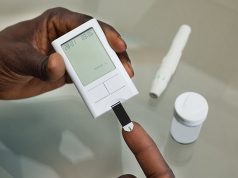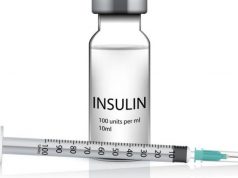Algorithm predicts no diabetes, prediabetes, type 2 diabetes with 97.1 percent precision, 96.8 percent accuracy
WEDNESDAY, Aug. 10, 2022 (HealthDay News) — A machine learning algorithm can detect diabetes and prediabetes from electrocardiogram (ECG) features, according to a study published online Aug. 9 in BMJ Innovations.
Anoop R. Kulkarni, Ph.D., from Innotomy Consulting in Bengaluru, India, and colleagues combined noninvasive ECG with machine learning to detect diabetes and prediabetes using data from 1,262 individuals and 10,461 time-aligned heartbeats recorded digitally from the Diabetes in Sindhi Families in Nagpur study. The dataset was divided into training, validation, and independent test sets, with 8,892, 523, and 1,046 beats, respectively. The classifier that used the signal-processed ECG as input and predicted membership of no diabetes, prediabetes, or type 2 diabetes classes was trained using extreme gradient boosting (XGBoost).
The researchers found that the prevalence of type 2 diabetes was about 30 percent and the prevalence of prediabetes was about 14 percent. Training was quick and smooth, with convergence achieved within 40 epochs. The DiaBeats algorithm predicted the classes in the independent test set with 97.1 percent precision, 96.2 percent recall, 96.8 percent accuracy, and 96.6 percent F1 score. A low calibration error was seen in the calibrated model (0.06). Leads III, augmented Vector Left, V4, V5, and V6 were most contributory to the classification performance as indicated by feature importance maps.
“In theory, our study provides a relatively inexpensive, noninvasive and accurate alternative which can be used as a gatekeeper to effectively detect diabetes and prediabetes early in its course,” the authors write. “Nevertheless, adoption of this algorithm into routine practice will need robust validation on external, independent datasets.”
One author was employed by Innotomy Consulting, and two authors were employed by M&H Research.
Copyright © 2022 HealthDay. All rights reserved.








